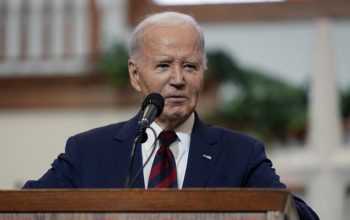news
“Ómicron, Russia and China: Year-End Trilogy”, an article by Dr. Leonel Fernández
December 13, 2021
As we find ourselves in the final days of 2021, considered by many as the year of recovery, three new elements have emerged that have created greater uncertainty in an unpredictable world that is in constant transformation.
One of these is Ómicron, the new variant of the Covid-19 virus, as well as the recent tensions between Russia and Ukraine, and between the People’s Republic of China and Taiwan, with the United States looming in the background.
As it faced the Covid-19 virus, humanity saw a light of hope with the emergence of the vaccine. So far, however, its distribution has been very unbalanced. In the developed world, and in part of the developing world, approximately 70% of the population has received the vaccines.
In Africa, however, so far only seven percent of its population has received the first dose of the vaccine. Because it is a global epidemic, or pandemic, no one is safe on the planet, and no one will be until all individuals receive the vaccine.
The fear is that if full vaccination of the population is not reached, the virus will continue to mutate and generate new variants. Under these circumstances, there is no guarantee of the effectiveness of the vaccine and its capacity to contain the spread of the virus.
This has been the case of the variants that have been identified by the letters of the Greek alphabet: Alpha, Gamma, Beta and Delta. The latter has caused real havoc, especially in India, where corpses had to be cremated because there was no space to bury the dead.
Even though the Delta variant is still expanding to different parts of the planet, especially in the United States and Europe, a new variant is now emerging. Its name: Ómicron. This mysterious variant, unknown to scientists, has the capacity to mutate into 50 other variants.
As news of its origin in South Africa spread, the stock exchanges in the world’s major capital markets experienced a sharp drop. The concern was to establish its level of transmissibility, severity and impact on individuals with accumulated antibodies, either by the virus or the vaccine.
But so far, regarding these concerns, nothing is known. Ignorance clouds the horizon.
The Russian Dilemma
At the same time, the Russian government deployed some 175,000 troops to its border with Ukraine attracting the attention of international public opinion. The situation is very similar to the conflict that occurred there in 2014, when the Russian occupied that country´s eastern region and subsequently annexed to its territory the Crimean Peninsula in the Black Sea.
The reasons for both events are the same. On the one hand, Ukraine´s current government aspires to join the European Union and the North Atlantic Treaty Organization (NATO), a military alliance headed by the United States and several European countries.
Russia, on the other hand, and appealing to historical reasons, considers Ukraine to be part of its territory and culture. At the same time, because of geographical proximity and geostrategic value, considered a risk to its national security, Ukraine is seeking to join a military alliance with the Western world.
For these reasons, Russia is moving its troops to the Ukrainian border in order to send an unequivocal signal to NATO-member nations that Russia is not in a position to admit that a former member of the Union of Soviet Socialist Republics (USSR) is no longer under the Russian sphere of influence, and prefers to align itself with the Western powers.
In order to address that thorny issue Presidents Joe Biden and Vladimir Putin held a virtual meeting last week, with the goal of avoiding an armed conflict and renew old international treaties.
But the truth is that with the collapse in 1991 of the Soviet Union 30 years ago and the dissolution of the Warsaw Pact – the military representation of the socialist countries – everyone believed that NATO had fulfilled its historical mission of containing the advancement of Marxism-Leninism, and should also disappear.
But it did not. On the contrary, it has worked to strengthen and expand into geographical areas considered by Russia as part of its sphere of influence and vital geographical regions.
The Xi Doctrine
In just four decades, the People’s Republic of China transformed itself from a poor, backward and rural nation into an economic, military and technological power. It is without a doubt one of the great wonders of modern history.
But by consolidating itself in these vital areas, China now aspires to spread its influence throughout the world, just as it has done in Asia, Africa and Latin America. It has created the Initiative of the New Silk Road, through which – through multi-million-dollar investments, important infrastructure projects are being built, fiber optic cables are currently being installed, the digital economy is being promoted and the 5G mobile network is expanding.
It has also established itself as the main powerhouse in the Indo-Pacific region. But as it progresses in its expansion process, it has created conflict in the East and South China Seas and with several countries in the area, such as Brunei, Thailand, Malaysia, the Philippines and Vietnam.
Chinese leaders, especially its Prime Minister Xi Jinping, have been emphatic in pointing out that their country has no imperial aspirations. They maintain that their only goal is to consolidate the unity of the Chinese people, using their Chinese history, language and culture as a cohesive element.
That would explain the severe restrictive policies applied in recent years in Hong Kong, a former British colony, which became part of the People’s Republic of China in 1997 under the criteria of one country, two systems.
It would also explain the attitude towards Taiwan, which the Chinese government considers part of its overall territory. Consequently, China is not recognized as a nation known for its independence, sovereign and self-determination policies.
There are those that believe that the only interest of the People’s Republic of China is only to produce a readjustment in the international system, allowing it to strengthen its authority, influence and prestige as a world power.
On the other hand, others believe that China´s real strategic objective is to generate a change in the world order, where its values, norms and principles will predominate in the face of a declining Western liberal order.
The tensions that are being fought today between Russia and Ukraine, as well as between China and Taiwan, with the United States in the shadows, together with the new variant of the virus that is spreading throughout the world, are three new examples, as the year comes to an end, of a world adrift, sailing on rough seas, uncertain and dangerous.





